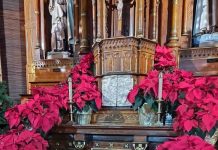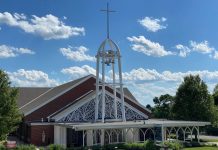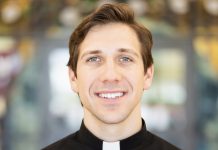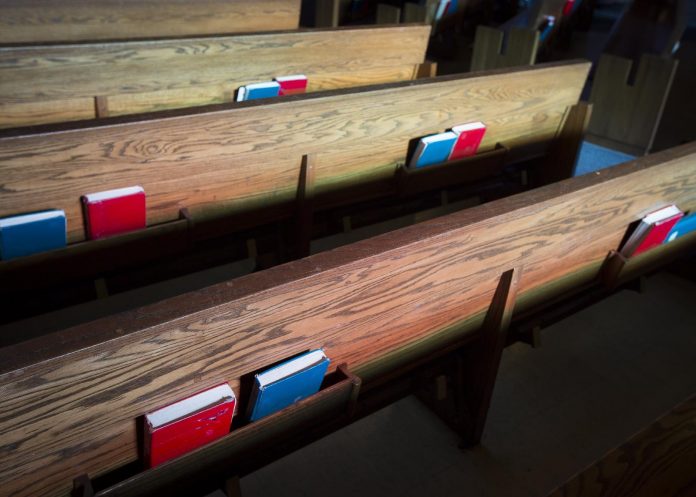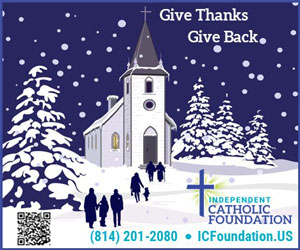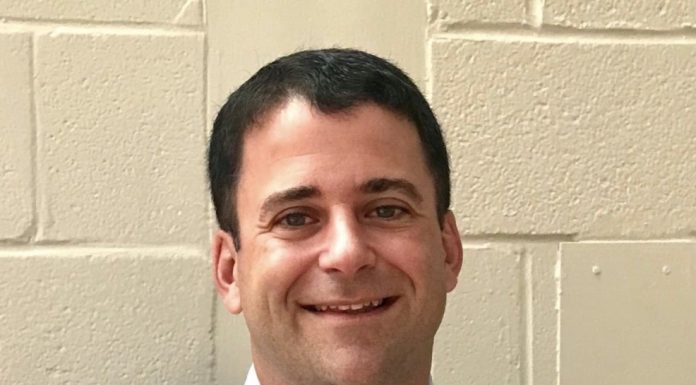By Mark Pattison
WASHINGTON (CNS) — Even with many recent hopeful signs on vaccinations and the reduction in the number of COVID-19 cases, there is no date certain at which the coronavirus pandemic will be declared over.
That should not stop parishes from planning now to welcome back parishioners to Mass in the future.
“You can’t be thinking, ‘What will we do after the pandemic?’ You have to be doing it now,” said Dominican Sister Teresa Rickard, president and executive director of Renew International, which has been offering parish renewal programs since 1976.
“I would be doing things leading up to the fall and going into next Christmas,” Sister Rickard added. “People have to be creative, innovating. It can’t be about maintenance, it’s got to be about mission.”
“Don’t dwell on what you can’t do, focus on what you can do,” said Jack Beers, content director for Dynamic Catholic, which sees as its mission “to reenergize the Catholic Church in America by developing world-class resources that inspire people to rediscover the genius of Catholicism.”
There had long been a “gravitational pull toward the parish — the social life- educational life, the worship life — all revolve around the parish,” Beers told Catholic News Service in a Feb. 18 phone interview. “That’s not true anymore. Worse than that, because of the pandemic, people are reluctant to come back. There’s a fear to (come back). … There needs to be something to get them over the hump to come back, to sort of overcome the repellent.”
“The main reason that people will come back to church is for community,” said Amy Ekeh, director of Little Rock Scripture Study, a small-group Bible study program serving Catholic parishes. “If they were already experiencing community as a parish, they’ll come back to that. Small groups is one way in parishes to experience that community.”
Asked whether there is a carrot-or-stick approach needed to entice pandemic-shy Catholics to return to church, Ekeh replied, “I think the carrot already had to be there,” referring to the sense of community parishioners feel. “They’re self-motivated by that. I don’t know if you can create a carrot if it wasn’t already there. And don’t even try the stick!”
Nor is it likely that Catholics would embrace “back to church” on a set date any more than they would for “back to school” for their children, according to Peter Dwyer, director of Liturgical Press.
“It’s probably healthier to think about gradually,” Dwyer said. “I too have thought about ‘we’re back’ the first Sunday we’re all back, but that’s not likely to happen because people will not feel comfortable.”
He added, “We have to be attentive to people who are not afraid and people who are very afraid. I think a parish leadership needs to be attentive to … what makes them feel welcome? It’s a tough call.”
Ekeh, who lives in the Archdiocese of Hartford, Connecticut, said: “I’m finding things all over the map in our archdiocese and the country. It depends on the leadership of the parish and the ministers.” She added, ” How do we bring together the best of both worlds — gathering together again in person but making use of these online tools as best they can?”
Beers said imitating the model of Jesus can be a big help. “Jesus didn’t wait on people,” he said. “He went to the people and went to the people — to go to the people and tell them to return to God.”
He added, “Most people’s first move toward going (back to church) isn’t a faith step, it’s a selfish one. What we’ve found in our work with parishes is that people miss a connection. … Many people start asking the question of what’s missing in my life, how can I gain this connection. What opportunities are there for us as a church? We have the only thing that can fill people’s lives, and that’s God. There’s a God-sized hole in people’s lives.”
Both Beers and Sister Rickard of Renew say parishes should be phoning parishioners right now.
Beers calls it “a simple act of just connecting with people,” and not just making one call and thinking the job is done.
“Check in: ‘How are you doing. Can we pray for you? What’s an obstacle for you at this time in your life?’” he said. “Some things are just practical, that people need a bridge. Or people need the Eucharist but they don’t know how, and they’re afraid: ‘How safe is Mass? Have you had any cases (of COVID-19)?’ But in most cases they don’t want anything from you and are just concerned about how things are at church.”
“You’ve got to do the personal touch. You’ve got to start encouraging people,” Sister Rickard told CNS. “Soon, more people will be coming to Mass. And you’ve got to be making your case why you should be going to Mass.” And that case, she added, cannot be “you’re going to hell if you don’t go.”
Instead, Sister Rickard said, tell people: “We miss being together, we’ll be together soon — personal outreach, telling people you care about them, and the power of community.”
Liturgical Press’ Dwyer said a “simple thing” for a parish to do would be for its hospitality committee “for some time — maybe for a long time — to offer masks, disposable masks, at the entrance to church, just to have them available as you would have a bulletin available.”
Cold and flu numbers were way down this winter, he noted, “because we were not in contact. Contact brings us all kinds of things we’d rather not have. What are the practices we can install as a community — and instill — as a way to make them feel comfortable?”
Dwyer said, “There’ll be all kinds of challenges. The communities that are growing, they don’t have room for everybody, and we don’t have enough clergy to do 10 Masses day, day after day, so we’ll have to make choices.” He added streaming Masses should continue, especially for parishioners who feel ill.
“Most people will make that choice anyway,” he said, “rather than come into contact with others.”
“Parishes thinking outside the box are getting more people now,” Sister Rickard said, taking note of a parish that dispensed drive-by ashes on Ash Wednesday. “I think people will appreciate it, and when they feel safe, it’ll be better,” she added. “Parishes that haven’t done much have to start catching up.”
Sister Rickard said, “When it got really safe, I’d have welcome-home Sundays, and not just once. Everything’s a new beginning, a celebration. And I would do a gradual rollout. Even in the fall, we’ll still be wearing masks.”


